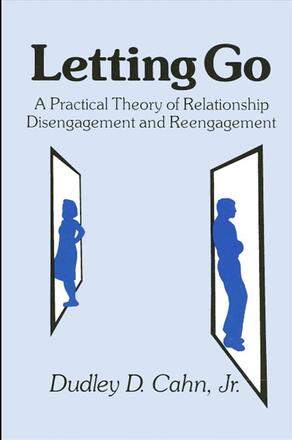Preface
Acknowledgments
Part One
Overview of Part One
1. Feeling Understood in Interpersonal Relationships
Introduction
Feeling Understood as a Measure of the Normative Force of a Rule
The Lack of Feeling Understood in Relationship Disintegration
The Need for More Meaningful Interpersonal Relationship
The Measurement of Perceived Understanding
Summary
2. On Maintaining One's Integrity in Developing Relationships
Introduction
The Nature and Scope of Self-Concepts
Interpersonal Communication and The Role of Self-Concept Support
Self-Concept Support and Types of Role-Taking
Self-Concept Rules: Guides to Communication and Relational Development
Specific Recommendations
Summary
3. Communication Skills
Introduction
Key Communication Skills and the Communicator's Mental and Emotional Outlook
Behavioral Orientations
Advantages and Phases of The Collaborative Behavioral Orientation
Specific Recommendations
Summary
4. Commitment Versus Letting Go
Introduction
Quality Communication and the Nature of Relationship Satisfaction
Availability of Alternatives and the Nature of Commitment
System Constraints
Investment Size
Relationship Reassessment: When to Stay and When to Let Go
Specific Recommendations
Summary
Part Two
Overview of Part Two
5. Interpersonal Relationships as Rule-Bound Communication Systems
Introduction
Relationship Rules
Relationship Stages
Implications of a Rules Analysis for Relationship Growth and Deterioration
Summary
6. Friendship
Introduction
A Quality Friendship Communication Environment
Friendship Self-Concept Support in General
Friendship Self-Concept Support: Males and Females
Friendship Development and Communication Competence
Friendship Reassessent: Key Communication Factors in Friendship Development
Summary
7. Marital Relationships: Marriage, Divorce, and Remarriage
Introduction
A Quality Marital Communication Environment
Marital Self-Concept Support in General
Self-Concept Support in Traditional and Nontraditional Marriages
Mateship Development and Communication Competence
Marriage Reassessment: Key Communication Factors in Marital Development
Summary
8. Supervisor-Subordinate Work Relationships
Introduction
A Quality Work Communication Environment
Supervisor-Subordinate Self-Concept Support in General
Self-Concept Support in Traditional and Nontraditional Organizations
Relationship Reassessment: Key Communication Factors in Relational Development
Paradigm Tests
Summary
9. Teacher-Student Relationships
Introduction
Quality Teacher-Student Communication Environment
Self-Concept Support in Traditional and Nontraditional Classrooms
The Role of Perceived Understanding in Teacher Evaluation by Students
Summary
10. The Renegotiation of Interpersonal Relationships: A Theory of Reengagement and Relationship Development
Introduction
An Integrated Approach to the Study of Human Communication
An Interpersonal Communication Model of Relationship Development
Relationship Reassessment: Key Communication Factors in Relationship Development
Summary
References
Author Index
Subject Index
